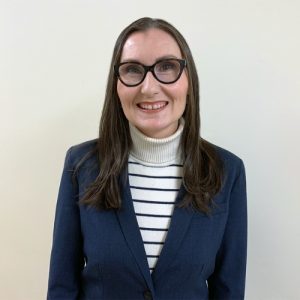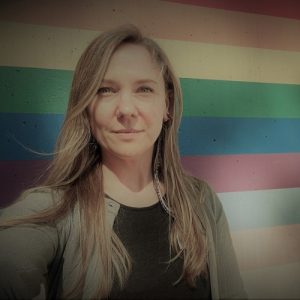As part of the MET Anti-Racism Speaker Series
Explore the journey of Teaching Transformatively, from its inception in a MET course to a comprehensive resource for educators. The integration of intersectional lenses into teaching and learning enables learners to situate themselves in the context of existing systems of power and privilege and to recognize how their unique layered identities shape how they experience the world. As new media modalities become ever more present and accessible, it is critical for learners from equity-deserving groups to see their identities reflected in their learning content and activities.
In this episode, Angela, Anneke and Chris will discuss their Edith Lando Virtual Learning Centre funded project entitled Teaching Transformatively: Culturally Sustaining Pedagogy Toolkit. Once complete, this digital toolkit will support educators in the work of cultivating culturally responsive and inclusive learning environments that center intersectional, IBPoC, and 2SLGBTQIA+ identities. Their goal is to empower teachers and learners with the tools needed to navigate the historical, social, and cultural contexts that intersect with sexual and gender identity, so that they can cultivate inclusive classrooms, and better yet, affinity spaces for change. Learn about decolonizing curriculum, supporting 2SLGBTQIA+ communities, and fostering anti-racism allyship.
The Teaching Transformatively: Culturally Sustaining Pedagogy Toolkit is aimed at assisting educators, inclusive of educators in rural and remote communities, to establish critical and culturally sustaining classrooms that prioritize intersectional identities such as BIPOC and 2SLGBTQIA+. This initiative aligns with broader goals of advancing equity, diversity, inclusion, decolonization, and anti-racism (EDIDA) by providing practical tools for transforming educational practices. The toolkit offers ready-made learning materials, unit and lesson plans, and an online affinity space. The project aims to serve communities by creating support networks, fostering awareness, providing access to diverse learning materials, and modeling an iterative, inclusive approach to educational development.



Angela Reynolds, Anneke Nussbaum, Chris Rugo
Angela Reynolds (she/her) is a UBC MET graduate, dedicated EDIDA advocate, and Learning and Development Advisor at Thompson Rivers University in BC’s Interior. Angela collaborates with TRU’s People and Culture team to design workplace learning initiatives for faculty and staff. Previous projects include inclusive makerspace and 2SLGBTQIA+ educator toolkits, training programs, and toolkits on topics such as ableism, equity, and disability justice, antiracism and intersectionality, decolonization, and Indigenous ways of knowing and learning. Most recently, Angela presented for the MET Inclusive Makerspace Conference, UBC’s Faculty of Education ‘Mini-Maker in You’ Workshop, TEC EXPO, and Inclusive Making Panel and Hands-On Workshop.
Anneke Nussbaum (she/her) is a UBC Master of Educational Technology alumni and has been teaching high school humanities and media studies in Manitoba and BC for nineteen years. An educator and SOGI lead in the Cowichan Valley School District, as well as a seasonal instructor at Vancouver Island University in the Faculty of Education, she works with 2SLGBTQIA+ educators, youth, and allies to support safe and inclusive learning communities. Throughout her career, Anneke has developed resources and presented at professional development workshops to support educators in Inclusive Education, Assessment for Learning, Instructional Design, Visible Thinking Literature Circles, Digital Storytelling, and Coaching Conversations to empower learner voice, engagement, reflection, and critical thinking.
Chris Rugo (he/they) is a UBC Master of Educational Technology alumni and currently works as a Library eLearning specialist at Humber College and the University of Guelph-Humber in Toronto. In their role, Chris is involved in developing online instructional resources, coaching faculty with instructional design and the use of educational technology, and supporting student digital fluency initiatives at Humber’s Idea Lab makerspace. As an uninvited settler, Chris is deeply committed to the goals of EDIDA and seeks to cultivate inclusive, culturally responsive learning environments that are both affirming and empowering to students. As an uninvited settler, Chris is especially dedicated to researching, adopting, and disseminating instructional design and educational technology frameworks that advance anti-oppressive and decolonized pedagogy/andragogy and practice.